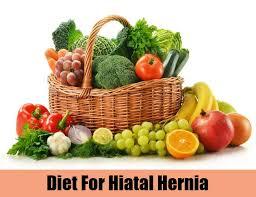What is Hiatal Hernia?
Hiatal hernia happens when the top part of your stomach thrusts up via the diaphragm into the chest area1.
The diaphragm is a muscle that lies between your chest and abdomen. This muscle assists you to breathe. Usually, the stomach is underneath the diaphragm in normal people. But in people with hiatal hernia, the section of their stomach pushes through this muscle. The cavity through which the part of the stomach moves through is known as hiatus.

This condition occurs mostly in people above fifty years. It affects up to about 60% of people by the time they reach 60 years.
Types of Hiatal Hernia
Hiatal hernia is grouped into the following2:
Fixed hiatal hernia
It occurs when a section of your stomach pushes via the diaphragm and remains there. Fixed hiatal hernia is uncommon and it is also called paraesophageal hernia. Fixed hiatal hernia cases are mild. But this condition may obstruct the flow of blood to your stomach. This obstruction can cause serious damage to your stomach and this needs urgent medical attention.
Sliding hiatal hernia
It happens when the esophagus and stomach slide out and into your chest via the hiatus. Sliding hiatal hernia is very common and does not cause any signs and symptoms.
Causes
The real cause of hiatal hernia is not known. The following are believed to be its cause:4
Injury or trauma
Injuries or traumas on the abdomen can cause hiatal hernia in some people. This injury weakens your stomach muscles and makes it possible for the stomach to push through the diaphragm.
Excess pressure
Another cause is excess pressure exerted repeatedly on your stomach muscles. This can occur when you cough, lift heavy objects, vomit and strain during bowel movement.
Genetic factors
Genetic factors can also cause hiatal hernia. Some people are born with an abnormally large hiatus. This kind of opening makes it easy for the stomach to pass through.
Risk Factors for Hiatal Hernia
There are some factors that can increase your risk of developing hiatal hernia such as1
- Obesity: Being overweight exerts a lot of pressure on your stomach muscles thus weakening them. The weak stomach muscles may allow the stomach to pass through the hiatus.
- Smoking: Smoking cigarette can weaken your stomach muscle and cause hiatal hernia.
- Aging: As people age, their muscles become weak and this can cause hiatal hernia.
Symptoms
Hiatal hernia common signs and symptoms are3
- People with this condition have heartburn that worsens when they lie down or lean over. They also feel pain in their chest or in the esophagus. Another symptom is that people with this condition have trouble breathing.
Hiatal Hernia Diet
Hiatal hernia can make you uncomfortable at times. When food is included, it can worsen or improve the symptoms. This is why a diet is recommended for people suffering from hiatal hernia.2, 3, 4
There are certain foods that improve the symptoms of hiatal hernia and boost your recovery. These foods include:
Lean meat
Lean meat can alleviate the symptoms of hiatal hernia. Eat lean meats such as cod, chicken breasts and mackerel. You can also eat ground beef and beans. When preparing meat and fish, bake them instead of frying.
Vegetables and fruits
Vegetables improves hiatal hernia. Dark leaf greens like spinach and broccoli offer you a lot of vitamin B and calcium which make your stomach muscles strong. You can also eat carrots and red peppers which have antioxidant properties that improve your digestive system. Other vegetables you can eat include string beans, kales and sweat potatoes.
Fruits that have antioxidant can also help ease symptoms of hiatal hernia. You can include the following fruits in your diet: blueberries, raspberries, apricots and cherries.
Water
It is good to take water one hour before or after eating your meals. Taking water enhances your digestive system and prevents heartburn from occurring.
Other foods that you can eat include:
- Bananas
- Apple
- Whole grain such as oatmeal, rice and bran
There are some foods that can worsen the symptoms of hiatal hernia. Foods that are highly acidic can weaken the esophageal sphincter. You should avoid the following:
- Lemon, grapefruit and orange
- Butter and oil
- Fried foods
- Ice cream and whole milk
- Onions and garlic
- Beverages such as caffeine, alcohol, tea and carbonated drinks
- spicy foods
In addition, avoid taking foods and drinks at high temperatures.
Hiatal Hernia Diet Plan
People diagnosed with hiatal hernia are treated with various treatment options according to the severity. Your doctor may suggest a diet plan for you to follow.
The diet plan recommends you should eat fresh fruits at an interval of five hours for three days. After three days, eat a healthy and balanced diet. Start with lukewarm water and a teaspoon of honey in the morning.
The following is a diet outline you can follow1:
- Breakfast: In the morning, you can eat fresh fruit and a glass of milk and honey.
- Lunch: At lunch time, eat steamed vegetable and a glass of buttermilk.
- Midafternoon: Take a vegetable juice or glass of fruits.
- Dinner: Eat either vegetables salad with lime juice, glass of butter milk and cheese.
- Bedtime: Take an apple or a glass of milk.
Diet is also important after hiatal hernia diet surgery. Hiatal hernia surgery needs enough time to heal properly. You can eat the following foods to boost healing from surgery depending on the stage of the surgery1:
- Stage 1, week 1: In this stage, the patient should take fluids only such as tea, unflavored milk, ice cream, strained soup, etc.
- Stage 2, week 2: In week two after surgery, eat soft foods such as boiled vegetables, boiled eggs, pasta, etc.
- Stage 3: Start eating light foods that you can chew properly such as tender meat, stews, chicken mince, etc.
- Stage 4: In this stage, you are ready to resume the normal diet. Eat meals in small quantities but regularly.
Reference list
- Hiatal hernia diet. https://www.belmarrahealth.com/hiatal-hernia-diet-foods-that-trigger-symptoms-foods-to-eat-after-surgery/
- https://www.livestrong.com/article/70561-foods-eat-hiatal-hernia/
- https://articles.mercola.com/hiatal-hernia/diet.aspx
- Hiatal hernia diet. https://www.healthline.com/health/hiatal-hernia#symptoms4
